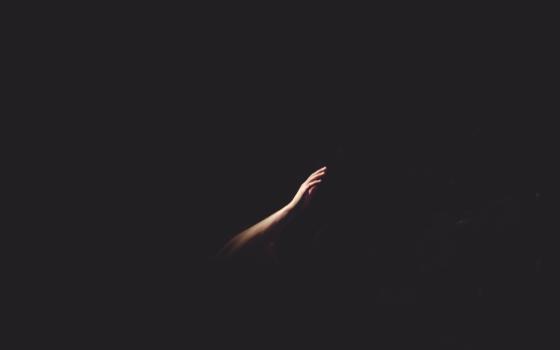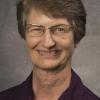I awoke with a crazy dream. AT&T was offering a new system of smartphones. They were collectively called "Discipleship." And the sales pitch was: "Don't miss a call!"
Laughing out loud I put aside any serious consideration of the "dream language," feeling that it was self-evident. "Listen, Judy. Don't miss an ordinary call!"
But a second "ah-ha moment" came as I sat at a red light. Hearing beautiful music, I put down my window as I recognized Simon and Garfunkel's "The Sounds of Silence" coming from the motorcycle stereo revving up next to me.
I smiled at the rider and shouted, "What lovely music!" "Yes," he shouted back, turning up the volume. "They have remastered it and I love it!" With that, the light changed and he sped off in a column of dust, having brightened my day.
With the dream and "The Sounds of Silence" as background I later finished reading Ken Follett's A Column of Fire, in which he explores the context of the Protestant Reformation in 1558 Kingsbridge, England, building on his earlier work Pillars of the Earth.
Even though the book had mixed reviews, Follett still has his gift of portraying graphic images; I "felt" the heat of burning heretics, experienced prosperous lives catapulted into misery because of a child's comment about a visiting priest, and anguished over the sordid reality of some Catholic hierarchy who played leading roles.
The central theme is the ongoing conflict between tolerance and fanaticism. The author shows the ethical complexity of ordinary people in the 16th century, in accepting the radical notion of religious tolerance. Such choices often meant losing financial stability in order to honor family commitments or remain true to their deepest values.
Follett portrays 16th-century Europe as a dark night of faith with few guides. And yet he chooses a title describing the Jewish escape from slavery, reminding us of Exodus 13:21: "By day the Lord went ahead of them in a column of smoke to lead them on their way. By night he went ahead of them in a column of fire to give them light so that they could travel by day or by night" (God's Word Translation, as used by the author.)
Considering our current world news and the backlash caused by religious bigotry, fear of difference, Column of Fire became for me an "overlay" of our present age. I "heard a call."
I know something about that confusing 16th century that was lacking in Follett's account.
I noticed that there was no mention of the ordinary people representing the mystical tradition within Christianity, who seemed to "redeem" the age through the integrity of their lives.
Follett may not be familiar with this tradition. Reflecting on this 16th-century reality I was reminded of those who did lead by doing, and who helped others choose hope in the midst of despair and confusion. The exceptional shift in moral certitude that reverberated throughout the Catholic/Protestant world was an evolutionary moment far beyond the scope of this reflection.
I would suggest, however, that two people — a sensitive poet and a passionate administrator — may offer stability not only to the 16th century, but also the 21st. I believe that the mystical tradition gives some of us a way forward in today's world.
I am not writing this as a scholar or as a mystic, but simply as someone who knows "darkness as an old friend" through the insight of John of the Cross, a Spanish poet and saint of that century. In his lived experience of the chaotic times described in Follett's book, he raises up a profound truth: Nothing we feel is any indication of our relationship with the Divine. In his encouragement to welcome the arid, dark night of faith, he opens a door to hope and cautions against nurturing a "spiritual sweet tooth."
In The Ascent of Mount Carmel, John writes: "Scripture says of the cloud: it was dark and illumined the night (Exodus 14:20). Our deduction is that since faith is a dark night, it illumines the soul that is in darkness."
This reminds me of a moment of my own "dark night." I had finished making a directed retreat in Guelph, Ontario; I was irritable and it was the "winter of my discontent." The last evening I realized I was sitting alone in the empty dining room after supper, reading the ingredients on the bottle of Tabasco hot sauce, hoping for a little spice in my spiritual life!
Is that all there is?
The lasting gift of that January retreat was observing the fidelity of a Canada goose sitting on her nest in blizzards and subzero weather. It was a "John of the Cross moment" which still gives me hope.
Learning to let go of consolation in prayer can bring precious energy and insight, and help us to cope with current struggles to be faithful to a church in crisis. "One dark night, filled with urgent longings, O the sheer grace, I went out, my house being now all stilled" (Ascent of Mt. Carmel).
John of the Cross speaks to me of entering solitude as a response to a "call." This is not simply a desire to be alone, but it is recognition that fidelity to being "dried out" is comparable at times to the experience of a recovering alcoholic. Letting go of judgement and simply letting desire be purified is greater than achievement.
In learning to welcome the silence I meet all creation in their sacred integrity, entering the cloud of unknowing and meeting mystics of all the world's traditions. Thus I find my place in the "splendid community of creation" St. Joseph Sr. Elizabeth Johnson refers to in Creation and the Cross.
If John of the Cross does not speak your language of desert dryness, then Teresa of Avila offers another path filled with energy and passion to deal with everyday issues. Her deep longing for union with God was seen by John of the Cross, 25 years younger, as another path of mystic union for a 16th-century woman. In her biography you hear her humor, her honest assessment of human nature, and her love for community leading her to wholeness. "I wish we had a larger garden for Sister X" tells me she understood her sisters so well.
As translators of John of the Cross, Carmelite friars Kieran Kavanaugh and Otilio Rodriquez have said that in her book The Way of Perfection, Teresa's desire for her sisters was not only a community "for their own sanctification but for the Church whose troubles distressed her as much as the thought of Christ's own sufferings. For Teresa the sufferings of the Church were the sufferings of Christ."
It is both a call and a challenge for me to enter this "dark night" of faith as the church I have loved seems further from Vatican II's ideals of Scriptural inclusiveness, being energized by the Spirit, empowering the laity, and building bridges between what separates us. May two mystics of the 16th century become a "column of fire," calling us to welcome "darkness, my old friend," as we journey into the 21st.
[Judith Best is a School Sister of Notre Dame and coordinator of SturdyRoots.org. She gives presentations on the heritage of the School Sisters of Notre Dame and is also exploring evolution as the bridge between science and religion.]

